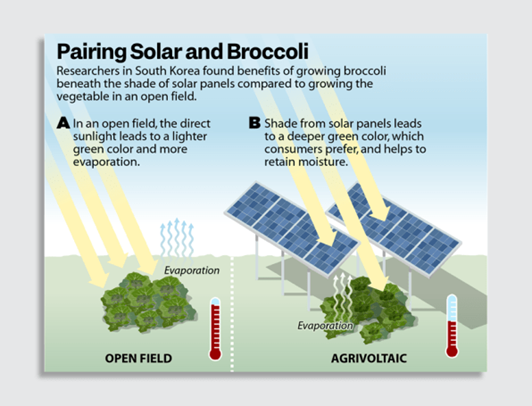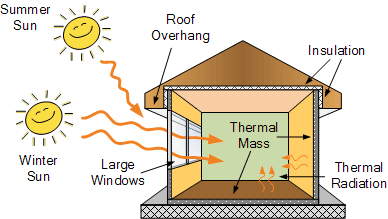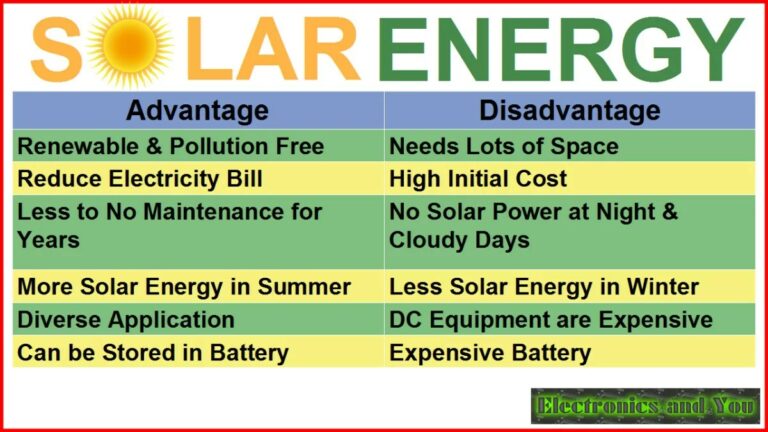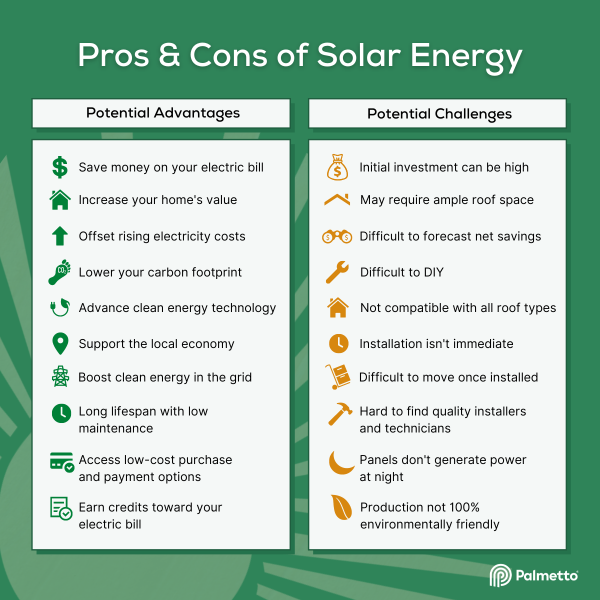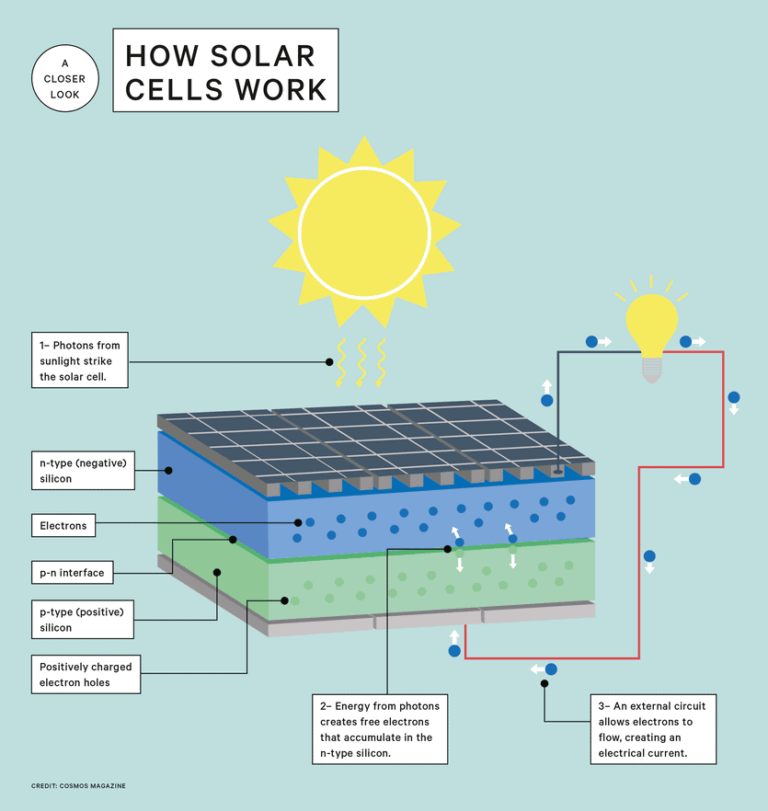What Is Solar Energy Used For?
What comes to mind when you think of solar energy? Maybe you picture sunlight streaming through windows or solar panels gleaming on rooftops. But have you ever wondered, “What is solar energy used for?” Well, you’re in luck! In this article, we’ll explore the fascinating world of solar energy and uncover its many practical applications. So, let’s dive in and discover the amazing ways we can harness the power of the sun!
When it comes to using solar energy, the possibilities are endless. From warming up our homes to charging our gadgets, solar energy has a wide range of applications. Want to know more about how solar energy can power your life? Keep reading to find out!
Solar energy is not just for big-scale projects; it can also be used in our day-to-day lives. Whether you’re camping in the great outdoors or lighting up your garden at night, solar energy can be a game-changer. Excited to explore the world of solar-powered wonders with me? Let’s get started on this sun-powered adventure!
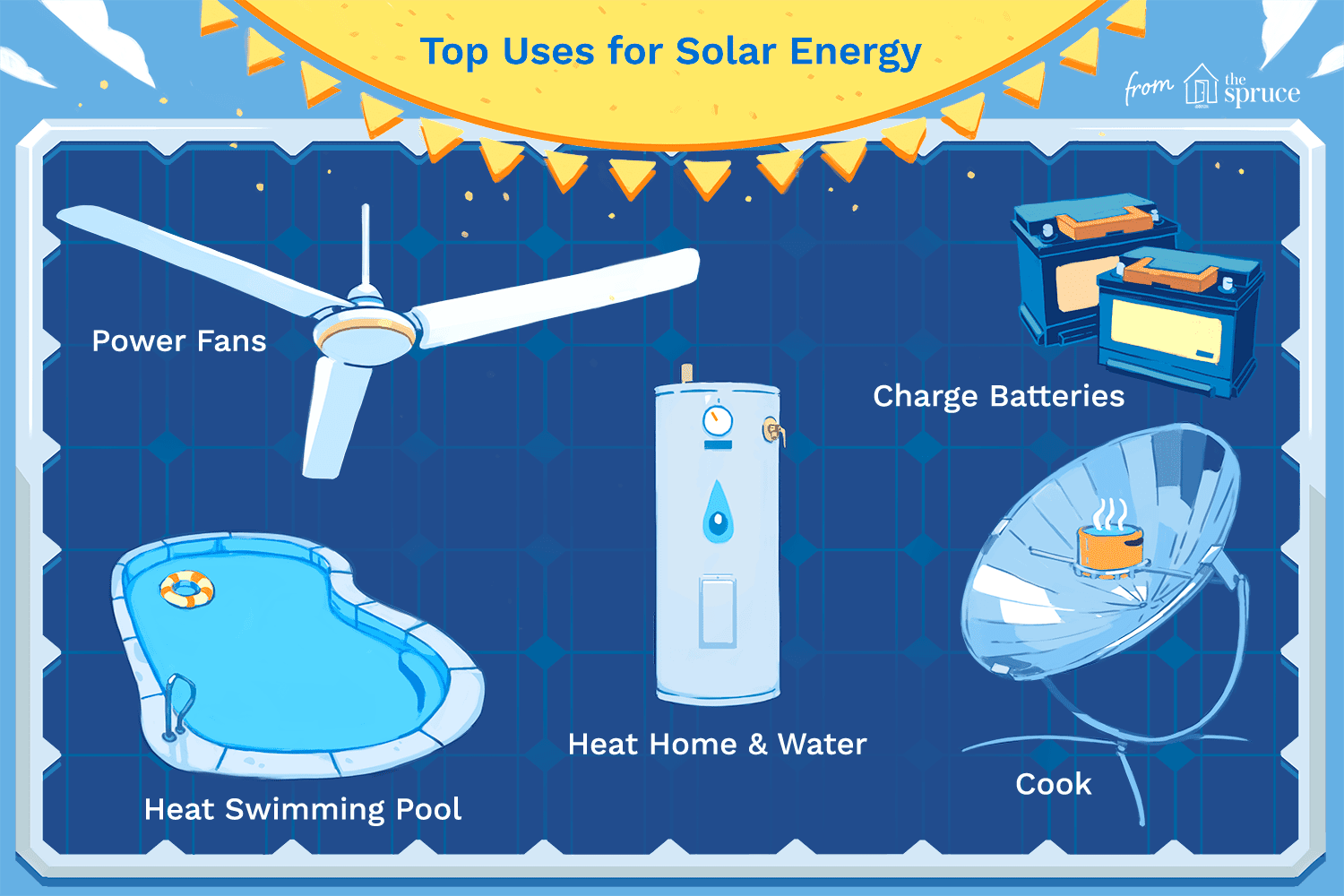
What Is Solar Energy Used For?: Harnessing the Power of the Sun
Solar energy is a renewable source of power that has revolutionized the way we generate electricity. Through the conversion of sunlight into usable energy, solar power has become a popular and sustainable solution to meet various energy needs. But what exactly is solar energy used for and how does it benefit us? In this article, we will explore the diverse applications of solar energy and its impact on our daily lives.
1. Solar Energy for Electricity Generation: Powering Homes and Businesses
Harnessing the sun’s rays to generate electricity is one of the primary uses of solar energy. Solar panels, also known as photovoltaic (PV) modules, convert sunlight directly into electrical energy through the photovoltaic effect. These solar panels are typically installed on rooftops or open spaces where they can capture the maximum amount of sunlight. The electricity generated by these solar panels can power homes, businesses, and even entire communities. With advancements in technology, solar energy has become increasingly efficient and cost-effective, making it a viable alternative to traditional power sources.
Solar power plants, also known as solar farms, are another notable application of solar energy for electricity generation. These solar farms consist of large arrays of solar panels that work together to generate substantial amounts of electricity. Solar power plants are particularly beneficial in regions with abundant sunlight, as they can provide clean and sustainable energy on a large scale. This helps reduce reliance on fossil fuels and decreases carbon emissions, making solar energy a crucial contributor to the fight against climate change.
Another innovative use of solar energy in electricity generation is through solar thermal power plants. Unlike photovoltaic panels that directly convert sunlight into electricity, solar thermal power plants use mirrors or lenses to concentrate solar radiation onto a receiver. The intense heat generated is then used to produce steam, which drives turbines to generate electricity. Solar thermal power plants are capable of producing electricity even when the sun is not shining, as they can store the heat for later use. This makes them a reliable and sustainable source of power, especially in areas with consistent sunlight.
2. Solar Energy for Water Heating: An Energy-Efficient Solution
Solar energy can also be harnessed to meet our hot water requirements. Solar water heaters utilize the sun’s energy to heat water for domestic or commercial use. These systems typically consist of solar collectors, storage tanks, and circulation pumps. The solar collectors, often installed on rooftops, absorb sunlight and transfer the heat to the water in the storage tanks. This process significantly reduces the energy consumption required to heat water, making solar water heaters an energy-efficient alternative to traditional water heating methods.
Solar water heating systems are particularly beneficial in regions where the demand for hot water is high, such as homes, apartment complexes, and swimming pools. By utilizing solar energy for water heating, we can reduce our reliance on fossil fuels and decrease greenhouse gas emissions. Additionally, solar water heaters require minimal maintenance and have a long lifespan, making them a cost-effective and sustainable solution in the long run.
3. Solar Energy for Solar-Enabled Transportation: On the Road to Sustainability
In recent years, solar energy has made significant strides in the transportation sector. Solar-powered vehicles, such as electric cars and bicycles, are gaining popularity as a sustainable mode of transportation. These vehicles incorporate solar panels on their roofs or bodies, which capture sunlight and convert it into usable energy to power their motors. Solar-powered transportation not only reduces dependence on fossil fuels but also cuts down on air pollution and noise emissions, creating a greener and healthier environment.
Solar energy is not only used in land transportation but also in marine and aviation sectors. Solar-powered boats and ships are becoming increasingly common, utilizing the abundant sunlight to generate electricity and propulsion. Solar-powered airplanes, although still in the experimental stage, hold the potential to revolutionize air travel by providing a sustainable and renewable source of power. These advancements in solar-enabled transportation not only contribute to a greener future but also spark innovation and drive technological progress in the automotive and aerospace industries.
4. Solar Energy for Agricultural and Rural Applications: Empowering Communities
Solar energy has immense potential in enhancing the lives of rural communities and promoting sustainable agriculture. Solar-powered irrigation systems offer a reliable and energy-efficient solution for farmers, enabling them to water their crops using solar-generated electricity. These systems eliminate the need for expensive and polluting diesel-powered pumps, making farming more affordable, sustainable, and environmentally friendly.
Solar energy can also be utilized in off-grid and remote areas where access to electricity is limited. Solar-powered mini-grids and standalone systems can provide these communities with a reliable and clean source of power, improving their quality of life and enabling the use of essential appliances such as lights, refrigeration, and communication devices. By embracing solar energy, rural communities can unlock economic opportunities, improve healthcare and education services, and bridge the digital divide.
In conclusion, solar energy offers a wide range of applications that revolutionize the way we generate electricity, heat water, and power transportation. From providing clean and sustainable power to homes, businesses, and communities, to reducing our carbon footprint and enhancing agricultural practices, solar energy is transforming the way we live and interact with our environment. As we continue to harness the power of the sun, it is crucial to invest in research and development, promote energy efficiency, and embrace solar technology to create a greener and more sustainable future for generations to come.
Key Takeaways: What is Solar Energy Used For?
- Solar energy is used to generate electricity.
- It can power homes, buildings, and even whole cities.
- Solar energy is used for heating water for homes and swimming pools.
- It can be used to cook food and dry clothes using solar cookers and dryers.
- Solar energy is also used in agriculture to power irrigation systems and light up farms.
Frequently Asked Questions
In this section, we will explore the various applications of solar energy and how it is used in our everyday lives.
How is solar energy used for electricity?
Solar energy can be used to generate electricity through the use of solar panels. These panels consist of photovoltaic cells that convert sunlight into electrical energy. When sunlight hits the cells, it excites the electrons, creating an electric current. This current can then be used to power homes, buildings, and even entire cities. Solar energy is a renewable source of electricity and can help reduce our reliance on fossil fuels.
In addition to generating electricity, solar energy can also be used for heating purposes. Solar thermal systems use the sun’s energy to heat water or air, which can then be used for various applications. For example, solar thermal systems can provide hot water for residential or commercial use, as well as heat for swimming pools or space heating in buildings. By utilizing solar energy for heating, we can reduce our carbon footprint and save on energy costs.
What are some other uses of solar energy?
Solar energy is not limited to electricity generation and heating. It has a wide range of applications in various fields. One common use of solar energy is in the field of agriculture. Solar-powered irrigation systems use solar panels to power pumps that draw water from a well or a water source. This allows farmers to efficiently irrigate their crops, even in remote locations without access to the power grid. Solar energy is also used in desalination plants, where it powers the process of converting seawater into fresh water.
Another interesting use of solar energy is in transportation. Solar-powered vehicles, such as solar cars and solar-powered boats, use solar panels to convert sunlight into energy, which is then used to power the vehicle’s motor. While solar-powered vehicles are not as common as traditional vehicles, they are gaining popularity as a sustainable and eco-friendly mode of transportation. Solar energy can also be used to power street lights and road signs, reducing the reliance on traditional grid electricity.
Can solar energy be used for cooking?
Yes, solar energy can indeed be used for cooking. Solar cookers, also known as solar ovens, use the sun’s energy to heat and cook food. These cookers consist of reflective surfaces that concentrate sunlight onto a cooking pot or tray. The heat from the sunlight is then trapped inside the cooker, allowing the food to cook. Solar cookers are particularly useful in areas where access to traditional cooking fuels, such as gas or electricity, is limited. They are a sustainable and environmentally friendly alternative for cooking.
Solar energy can also be used for food preservation. Solar dehydrators use the sun’s heat to remove moisture from food, effectively preserving it. This method is commonly used for drying fruits, vegetables, and herbs. By utilizing solar energy for cooking and food preservation, we can reduce our reliance on traditional cooking fuels and minimize food waste.
How is solar energy used in space exploration?
Solar energy plays a crucial role in space exploration and satellite missions. Solar panels, also known as solar arrays, are used to power spacecraft and satellites in outer space. These panels capture sunlight and convert it into electrical energy to power the onboard systems and instruments. This enables satellites to operate for extended periods without the need for manual recharging or fueling. Solar energy is a reliable and sustainable source of power in the space environment, where other energy sources may not be feasible.
Moreover, solar energy is also used in the International Space Station (ISS). The ISS is equipped with large solar arrays that provide electricity for the astronauts, as well as power the onboard systems. The sunlight in space is abundant and provides a consistent source of energy for the space station. By harnessing solar energy, space missions can be conducted more efficiently and sustainably.
Is solar energy used for water heating?
Yes, solar energy is widely used for water heating systems. Solar water heaters, also known as solar thermal systems, utilize the sun’s energy to heat water for various purposes. These systems consist of solar collectors that absorb sunlight and transfer the heat to water or a heat-transfer fluid. The heated water can then be stored in a tank and used for bathing, cleaning, or other domestic hot water applications. Solar water heaters can be installed in residential buildings, commercial establishments, or even for large-scale industrial use.
Solar water heating systems offer numerous advantages. They are an environmentally-friendly alternative to conventional water heating systems that rely on fossil fuels. Solar water heaters can reduce energy consumption and greenhouse gas emissions, contributing to a more sustainable future. In areas with ample sunlight, they can be particularly cost-effective, saving households and businesses money on energy bills in the long run.
Summary
Solar energy has many important uses that benefit both the environment and our daily lives. It can be used to generate electricity for our homes and buildings, which helps reduce our dependency on fossil fuels. Solar power can also be used to heat water, which is great for swimming pools and even for our showers. Additionally, solar energy is used in calculators and outdoor lights, making it a convenient and renewable source of power. Solar energy is clean, abundant, and can help us create a more sustainable future for our planet. So let’s harness the power of the sun!
Solar energy is a fantastic resource that can be used in various ways. From generating electricity to heating water and powering small devices, solar energy has a positive impact on our environment. By using solar power, we can reduce pollution and greenhouse gas emissions while also saving money on our energy bills. So let’s embrace the power of the sun and make a brighter and cleaner world for ourselves and future generations. Together, we can harness the sun’s energy and protect our planet!

